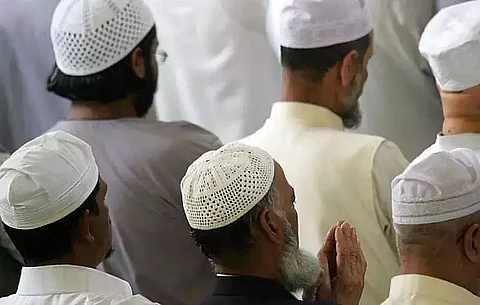
- Home
- Live Blog
- Breaking News
- Top Headlines
- Cities
- NE News
- Sentinel Media
- Sports
- Education
- Jobs

Assam’s indigenous Muslims are a community that has remained neglected for a long time despite being an integral part of Assamese society. On the contrary, it is the immigrant Muslims who have taken all the benefits available for minorities by virtue of their sheer and ever-increasing number. There is no second opinion on the fact that this has happened due to a policy of encouraging infiltration and protecting infiltrators adopted and pursued by the previous Congress regimes in the post-Chaliha era. Large-scale immigration of Muslims to Assam began after the partition of Bengal in 1905, when Assam was clubbed with Eastern Bengal. The British encouraged the immigration of Muslim peasants to increase foodgrain production. The Muslim League’s objective was to change Assam’s demography and include this region in Pakistan. It is important to note that while Gopinath Bardoloi, Bishnu Ram Medhi, and Bimala Prasad Chaliha took a strong anti-immigrant stand, Assam’s Congress leaders of the later period adopted a policy of appeasement of Muslims. DK Barooah even coined a slogan saying that as long as Muslims (immigrants) were with it, no power could dislodge the Congress in Assam. Sarat Chandra Sinha practically ensured that lakhs of Muslims from East Pakistan who came to Assam as refugees during the Bangladesh liberation war did not return home. Thus, the policy for minorities that successive Congress regimes pursued totally ignored the indigenous Muslims of Assam, the reason being that they do not constitute a typical vote bank. The history of Assamese indigenous Muslims goes back to the early thirteenth century, when some Muslims of Turko-Afghan invader Bakhtyar Khilji’s army stayed back in the Brahmaputra Valley. It was also during this invasion that the chief of the Mech community of Goalpara got converted and came to be known as Ali Mech. Today, the descendants of Ali Mech are referred to as “deshi” Muslims. While the converted families increased in size, a series of Muslim invasions until the seventeenth century left behind quite a number of soldiers of the invaders to stay back and settle down in Assam by marrying into local communities. The arrival of a couple of Sufi saints in the seventeenth century adds another dimension to the indigenous Muslim community of Assam. It is important to note that the Assamese Muslims have played a significant role in the freedom movement as well as in the development of Assamese literature, art, and culture. The sub-committee on cultural identity of indigenous Assamese Muslims, in its report submitted to the Government of Assam in December 2021, has divided the indigenous Muslims of Assam into five distinct groups: Syed, Goriya, Moriya, Deshi, and Julha or Joloha. While the sub-committee made some very significant observations in its report to the government, one observation says that a section of Assamese Muslims is getting influenced by the radical teachings introduced by an increased penetration of organisations that go against the liberal outlook of the Assamese Muslims.